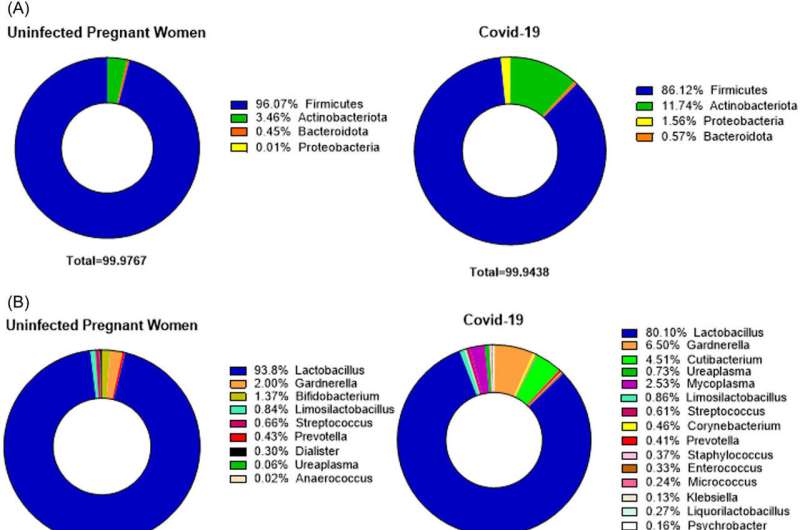New findings on the effects of COVID-19 on preterm birth shed light on the importance of the vaginal microbiota

A new study conducted by researchers from Koç University İsbank Center for Infectious Diseases (KUISCID) reveals crucial data on the risk of preterm birth caused by the change in vaginal microbiota due to COVID 19. The research started during the spring of 2020, when the pandemic was at its peak, and continued until vaccines were available.
Although studies demonstrating the effect of the SARS-CoV-2 virus on preterm birth were already emphasized by many health professionals during the pandemic, this is the first research in literature that focuses on the cause of this relationship. That’s why the study has attracted significant international attention worldwide. Results were recently published in the Journal of Medical Virology.
Vaginal microbiota concerns all the microorganisms found in the female reproductive system. A balanced microbiota is possible by suppressing pathogens (disease-causing organisms). Otherwise, the proliferation of harmful organisms leads to certain risks, such as preterm birth.
KUISCID Vice Director Prof. Füsun Can, Assoc. Prof. of Obstetrics & Gynecology at Koç University School of Medicine and Director of the Perinatology Clinic Ebru Çelik, and Ph.D. student Gülin Özcan investigated the link between COVID-19 and the disruption of vaginal microbiota balance.
“We started off with the question whether the virus disturbs the balance of beneficial and harmful bacteria during its effect on the vaginal microbiota,” Prof. Füsun Can explains. Together with numerous departments of the university, an interdisciplinary approach was conducted during a time of great risk, high maternal mortality figures, and no vaccines. “We carried on with the study during the midst of the pandemic despite the risk,” she continues. “We took samples from severe COVID-19 cases who were pregnant and currently treated at Koç University hospital.”
Vaginal swabs were also collected from a control group. The study revealed that disruption in vaginal microbiota balance continued even after the disease, and there was significant difference in the pathogenic bacteria levels between the infected and control groups.
“We observed a 70% microbiota change. Unfortunately, one of the babies was born at only week 25—luckily as the Koç University Hospital we are very experienced in this field and managed to save all infants,” Ebru Çelik says. Additional findings on the vaginal damage demonstrated strong proof that changes in microbiota are the main cause increasing the risk of preterm birth during COVID-19, which normally is known for its effect on the respiratory tract and lungs.
The results of this study are expected to raise awareness not only about the critical role of vaccines but also the importance of vaginal microbiota and early treatment. Early interventions in the microbiota during other viral infections like COVID-19 will come out as a more critical solution.
Ebru Çelik draws attention to the fact that this process also helped changing people’s perception on a topic that was in some regions considered a taboo. Vaginal examinations are still more infrequent than other regular checks and are yet to become popularized among women all around the world. The attention attracted by the topic during the pandemic will be of crucial help in reducing pregnancy risks in the future.
Source: Read Full Article
